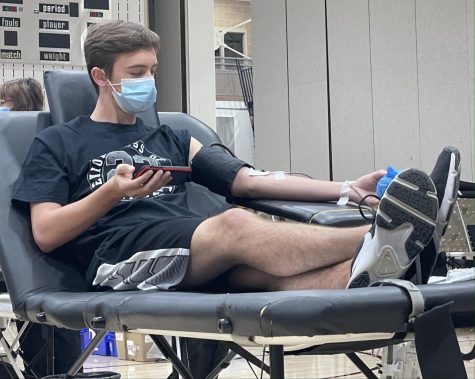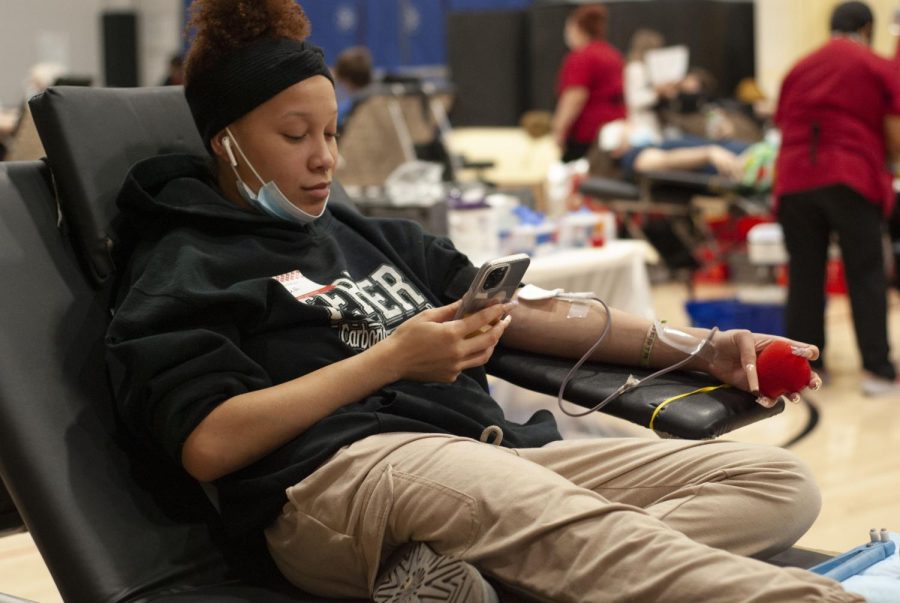Coach Butler’s Perspective on the Spring Blood Drive
Fourteen years ago, when Michael Butler started teaching full time at Carbondale Community High School, he started working the blood drive with the school’s Student Council. With his booming voice and stature, Butler helped the blood drive grow.
“I started donating blood when I was a sophomore in college. I realized the impact that it [has], so I started going. I’ve been doing that two to three to four times a year for, obviously, well, it would be now 37 years.”
Now, at CCHS, Butler ensures that students sign up to give blood. Each drive he makes sure that the school meets the goal of at least 100-150 pints donated. It is also a tradition that Butler is always the last person to give blood.
Butler is strongly against giving extra credit, but the blood drive is the only exception. Some students aren’t able to give blood because of low iron, height, weight ratio, etc. Despite this, Butler awards 20 extra credit points for students that try to donate. He awards 35 points for students that donate successfully, and 50 points to students that do Power Red. This is a process that takes out blood and separates it into plasma and viable cells, which is used in different types of transplant procedures. This process takes double the time than simply donating blood.

The Red Cross offers school blood drives special incentives. For every 100 pints of blood donated, the Red Cross provides a $1,000 scholarship. CCHS has reached 300 pints, which means three $1,000 scholarships will be given out to seniors who’ve donated blood.
Currently there is a dire need for African Americans to donate blood, because their blood contains the sickle cell gene. As a special program, the Red Cross is giving out one $5,000 scholarship to the top 10 high schools in the nation that have the most African American donations. Currently, CCHS is 17th place, so it is possible the school may receive the scholarship, if 33-35 African American students donate blood during the spring blood drive.
When Butler was asked about the importance of blood drives, he stated: “It’s about giving to the greater good. It’s about what [you can] give to your community, and that’s a lost art nowadays. Everybody seems to want to have something given to them rather than to give back.”
This spring blood drive, CCHS students donated a total of 128 pints. Results regarding the African American donations will be announced later in the year.

